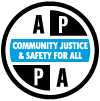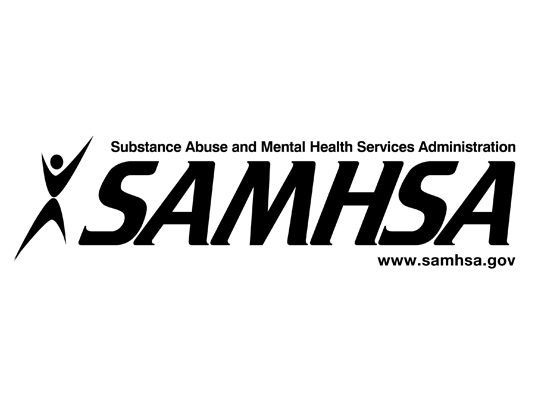
ALL RISE | NADCP
The National Association of Drug Court Professionals (NADCP) is a premier national resource for all Problem Solving Court practitioners and was established as a specialized institute in December 1997. Today, the National Drug Court Institute (NDCI) is the preeminent source for comprehensive training and cutting-edge technical assistance to the entire Drug Court field. Drug Courts, Mental Health Courts, Family Drug Courts, Veterans Courts and Juvenile Drug Courts rely on the research and information this site provides. Evidence based practices from incentives and sanctions to the role of each team member help new and established problem solving courts build programs that are effective and help the clients we serve with substance use and mental health disorders. Since its inception, the institute has trained 36,641 drug court professionals in all 50 states and U.S. territories as well as seven countries and developed 37 publications, disseminating them to 456,166 professionals worldwide.
NADCP also provides training to over 3,000 Drug Court and problem-solving court professionals annually at its national conference; the largest training conference in the nation addressing substance abuse and crime. The Arizona Association of Drug Court Professionals (AADCP) is lucky to partner with NADCP to bring nationally recognized professionals to the annual AADCP conference in Prescott, Arizona each April.

AMERICAN PROBATION AND PAROLE ASSOCIATION
The American Probation and Parole Association (APPA) is an international association composed of members from the United States, Canada and other countries actively involved with pretrial, probation, parole and community-based corrections, in both criminal and juvenile justice arenas. All levels of government including federal, state/provincial, local and tribal agencies are counted among its constituents. By taking the initiative, APPA has grown to become the voice for thousands of pretrial, probation and parole practitioners and providers of services including line staff, supervisors and administrators from both the public and private sectors. Educators, volunteers, victim service providers, concerned citizens and others with an interest in criminal and juvenile justice are also among APPA members.
APPA is a crucial part of problem solving courts because they help support training and advocacy for probation and parole staff. APPA helps further the AADCP mission through their promotion of programs that are informed and effective in helping vulnerable populations such as those found in Drug Courts, Mental Health Courts, Veterans Courts, Family Drug Courts, and Juvenile Drug Courts. APPA helps develop involved leaders that utilize critical thinking and problem solving. Professionals can get involved through participation on various committees to address issues around risk and needs assessments, adult and juvenile female offender services, community corrections response to domestic violence, and many other relevant topics.

ARIZONA LAW FOR VETS
Arizona Law for Vets is a resource page for Veterans. It also highlights the many Veterans Courts in Arizona. Resources from this site can be used by Veterans Court teams to help the clients they serve. Resources include consumer law, benefits, employment, health, legal assistance, business, education, finance, identity thefy, services for female veterans and housing. This holistic approach to treating and supervising veterans involved in the criminal justice system helps build a stronger Veterans Court that addresses the many barriers that can interfere with the success of the Veterans Court participant.
Arizona Law for Vets also supports the Stand Down events in Arizona. These events help veterans rectify as many legal issues as possible without fear of being arrested. Stand Down events also provides hot meals, medical and dental services, haircuts, employment services, clothing and help getting identification. Many Problem Solving Court professionals donate their time and includes judges, probation and parole officers, treatment providers, lawyers, and community agencies, all with a focus of helping homeless veterans.
AADCP supports the efforts of Arizona Law for Vets and encourage all Drug Court, Mental Health Court, Veterans Court and Family Drug Court and professionals to visit the site and become familiar with the work they do.

CENTER FOR COURT INNOVATION
Founded as a public/private partnership between the New York State Unified Court System and the Fund for the City of New York, the Center creates operating programs to test new ideas and solve problems. The Center’s projects include community-based violence prevention projects, alternatives to incarceration, reentry initiatives, and court-based programs that seek to promote positive individual and family change, and many others.
The Center disseminates the lessons learned from innovative programs, helping justice reformers around the world launch new initiatives. The Center also performs original research evaluating innovative programs to determine what works (and what doesn’t).
AADCP received Technical Assistance from the Center for Court Innovation to develop a 5-year strategic plan for the Association. The goal was to further the vision of the AADCP and provide improved services to its members. As a result, AADCP now offers Technical Assistance to its members that includes evidenced based practices in the delivery of incentives and sanctions, the roles of the team members in your problem solving courts, the newly published standards for Drug Courts, and many other topics. The Center for Court Innovation also provides training and currently released videos on the various roles of the team members in your problem solving court. AADCP strongly encourages its members to utilize this website.

JUSTICE PROGRAMS OFFICE OF THE SCHOOL OF PUBLIC AFFAIRS AT AMERICAN UNIVERSITY
The mission of the Justice Programs Office (JPO) at American University is to apply the tools of scholarship, professionalism, and “best practices” to the design and management of public programs, with particular attention to policy development and the administration of justice at the local, state, and federal levels of government. To carry out this mission, the JPO engages in training, technical assistance and research programs, and provides information and publication dissemination services to government officials, NGOs, and the public at large.
Problem solving courts require a multi-disciplinary approach in client staffings, supervision, and in the delivery of treatment services. JPO offers technical assistance to programs, as well as program evaluations and onsite program assessment and analysis. Their resources can assist probation officers, lawyers, treatment providers and the judiciary an objective analysis and help programs work to collaborate and provide effective services. Technical assistance can be short term or long term. AADCP encourages problem solving courts to consult the resources available from JPO. Most of the partners in a problem solving court are government employees who hold a responsibility to the public to perform their duties ethically and with good stewardship. JPO can help focus programs on ethical and effective practices.

NATIONAL DRUG COURT INSTITUTE
The National Drug Court Institute (NDCI) was formed in 1997 in response to a great need for standardized, evidence-based training and technical assistance as a result of the rapid expansion of problem-solving courts across the US. As a division of the 501(c)3 non-profit The National Association of Drug Court Professionals (NADCP),theye have continually evolved to meet the ever-changing needs of treatment court professionals and have emerged as the definitive authority on the latest research, best practices, and cutting-edge innovations to treat offenders facing substance use and mental health disorders. With endorsement and funding from a variety of federal agencies—including the US Department of Justice, White House Office of National Drug Control Policy, and Substance Abuse and Mental Health Services Administration—NDCI has successfully trained more than 200,000 adult, family, juvenile, and tribal drug court professionals in all 50 states, Washington DC, and three of four US territories.
Through a long-established partnership with NDCI, the AADCP has provided training to problem solving court teams across Arizona on best practices and the latest research to support effective programming for substance use and mental health disorders. It is through this partnership that many Arizona problem solving courts have been able to assess their protocol and practices and make adjustments to improve program effectiveness.

NATIONAL INSTITUTE OF CORRECTIONS LIBRARY
The National Institute of Corrections (NIC) is an agency within the U.S. Department of Justice, Federal Bureau of Prisons. The Institute is headed by a Director appointed by the U.S. Attorney General. A 16-member Advisory Board, also appointed by the Attorney General, was established by the enabling legislation (Public Law 93-415) to provide policy direction to the Institute.
NIC provides training, technical assistance, information services, and policy/program development assistance to federal, state, and local corrections agencies. They also provide leadership to influence correctional policies, practices, and operations nationwide in areas of emerging interest and concern to correctional executives and practitioners as well as public policymakers.
NICis another great resource for problem solving courts seeking technical assistance in agency management, operations and programming. They can evaluate problem solving courts’ efforts to train their multi-disciplinary team. NIC also provides access to many publications regarding best practices related to topics such as the criminal justice system, risk and needs assessments, effective pretrial services, juvenile justice system best practices, and effective community reintegration activities.
AADCP encourages problem solving court programs to become familiar with the many resources available through this website. The online training is valuable to problem solving courts and includes topics such as team building, leadership, safety and wellness, diversity, decision making and communication.

SUBSTANCE ABUSE & MENTAL HEALTH SERVICES ADMINISTRATION
The Substance Abuse and Mental Health Services Administration (SAMHSA) is the agency within the U.S. Department of Health and Human Services that leads public health efforts to advance the behavioral health of the nation. SAMHSA’s mission is to reduce the impact of substance abuse and mental illness on America’s communities.
Congress established the Substance Abuse and Mental Health Services Administration (SAMHSA) in 1992 to make substance use and mental disorder information, services, and research more accessible.
Prevention, treatment, and recovery support services for behavioral health are important parts of the health service systems for the community. The services work to improve our health and minimize costs to individuals, families, businesses, and governments. However, people suffering from either substance use and mental disorders, or both, because of their illness are often excluded from the current health care system and instead have to rely on “public safety net” programs. The gap in service to this population unnecessarily jeopardizes the health and wellness of people and causes a ripple effect in costs to American communities.
SAMHSA provides leadership and devotes its resources, including programs, policies, information and data, contracts and grants, to help the United States act on the knowledge that:
- Behavioral Health is essential to health
- Prevention works
- Treatment is effective
- People recover from mental and substance use disorders

THE NATIONAL DRUG COURT RESOURCE CENTER
Treatment Courts (also sometimes referred to as problem solving courts or specialty courts) are specialized programs to help justice-involved individuals receive treatment for substance use and other mental health disorders, and they have proliferated across the country over the past three decades. The most common of these treatment courts is the adult drug court. The National Drug Court Resource, Policy, and Evidence-Based Practice Center (NDCRC) is the go-to place for drug court practitioners to access a wide variety of resources to make their programs as effective as possible. Housed at the Justice Programs Office at American University, the NDCRC has collected sample forms, research, a map of drug and other treatment courts across the country, and other resources that these practitioners can use to help their participants receive the treatment they need to get their lives back on track.
NDCRC provides sample forms for your program ,legislative updates, grant solicitation resources, contact information for state drug court coordinators, a list of all the drug courts by state, and resources regarding case law. This is a valuable resource for all problem solving court professionals and also offers a technical assistance program designed to help drug courts improve program practices to increase program effectiveness.

National Center for DWI Courts
Impaired driving is recognized as one of the biggest threats to public safety in the United States. The National Center for DWI Courts (NCDC) is dedicated to reducing impaired-driving recidivism nationwide by addressing the root problem: addiction. We partner with federal agencies and corporate sponsors to provide cutting-edge training and technical assistance to communities to implement, expand and improve DWI court programs that provide treatment and accountability based on research-driven best practices. We are dedicated to expanding DWI courts to serve everyone in need and to make our communities safer each and every day.
Established in 2007, NCDC is a division of the National Association of Drug Court Professionals, a 501(c)3 non-profit organization based in Alexandria, Virginia.

National Drug Court Resource Center
The National Drug Court Resource Center’s (NDCRC) mission is to equip treatment court practitioners with an array of resources relevant to the field. Since October 2019, the NDCRC has been housed in the University of North Carolina Wilmington (UNCW) in Wilmington, North Carolina. Our work focuses on providing treatment court professionals with the information needed to design and implement programs that align with best practice standards, expand and enhance court operations, as well as collect and analyze program data. NDCRC resources are featured on the website and include original publications, interactive maps, operational materials organized by court type, seminal readings for treatment court stakeholders, calendar of professional development opportunities, and more.


